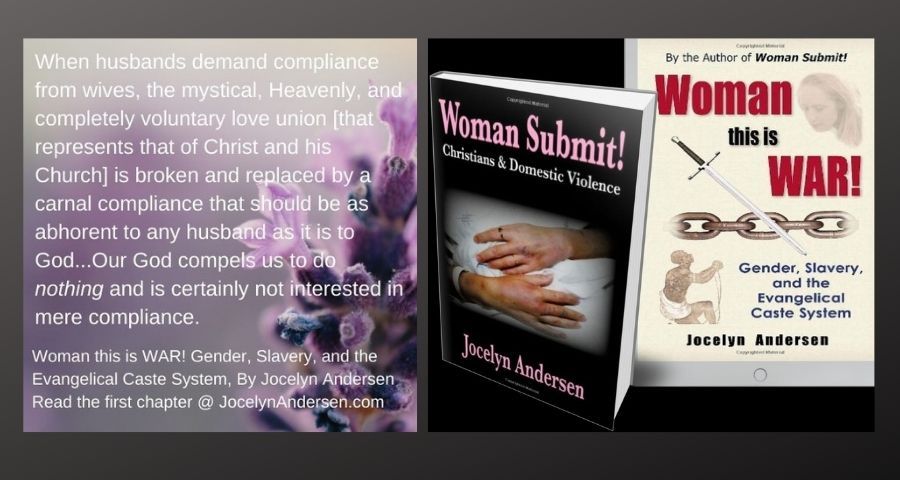The Bible teaches liberty and perfect functional equality of the sexes. God calls and empowers his daughters as well as his sons to pursue happiness, strive for excellence in both the home and the workplace, and to serve HIM in whatever capacity HE calls them--without gender role restrictions.
But a pulpit war is being waged so effectively, that many Christians believe human interpretations and even changes to scripture are scripture.
Dire warnings are issued, that to deviate from the misinformation about gender-roles flooding the Christian world [through the Council for Biblical Manhood and Womanhood --CBMW], is to rebel against God Himself.
Disagreements abound between denominations. But differences are set aside and arms linked in the common goal of exalting the male sex by suppressing women in the home, church, and workplace [indeed, that is the only way it can be done].
This blog, and book that inspired it, is all about uniting Christians in love by exposing the ugly (No, that is not an oxymoron), tearing down misconceptions and deliberate falsehoods, and proclaiming the truth of equality (no "Equal Buts...!") that Jesus promised would set us all, FREE.
Author and speaker,
Jocelyn Andersen, is a domestic violence survivor. She is pro-life and
outspoken for women’s rights—especially Christian
women’s rights.
Woman this is WAR! Gender Slavery and
the Evangelical Caste System, examines Bible commentary and translation
practices which have historically been androcentric (male centered) and even
misogynistic (anti-woman).
These have adversely effected
understanding of the scriptures, relations between women and men, the happiness
of men and women, and, in general, has hindered the work of the gospel, by
forbidding women to preach, pastor, or serve as elders or deacons. The book
chronicles the early history of the women's rights movements, as well as the
role of church leadership in aggressively suppressing both women's rights and
the historical record of Christian initiatives within the movements.
Through the complementarian
movement, many of the same arguments used to support the institution of
slavery, are still used today in suppressing the rights of Christian women.
This book documents identical arguments used by Christian leaders against both
movements and is an unparalleled resource for all who desire an in-depth study
of gender equality from a historical and Christian perspective.
This
book traces history of women’s rights, much further than usual, to the very
first feminists…who were Christians—godly women, who brought the issue
of women's rights to the forefront as they struggled to alleviate the suffering
of others, and found they were hindered in doing so for no other reason than
the fact of their sex. This work, provides valuable historical insight into
Christian initiatives in the movements for women’s rights, that are rarely
included in Christian literature.





